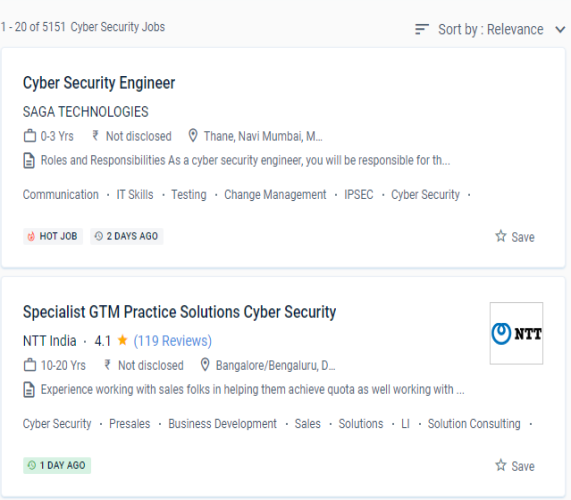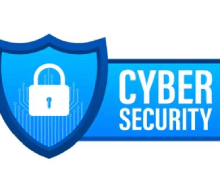Cyber Security Training by Experts
Our Training Process

Cyber Security - Syllabus, Fees & Duration
MODULE 1
- Cyber security
- Importance and challenges of cyber security
- Integrity, availability
- Layers of cybersecurity
MODULE 2
- Types of Malware
- Worms
- Viruses
- Spyware
- Trojans
MODULE 3
- Cyber security fundamentals
- Cyber criminology
- Cyber forensics
MODULE 4
- Cyber security breaches
- Phishing
- Identity Theft
- Harassment
- Cyber stalking
MODULE 5
- Types of cyber-attacks
- Web-based attacks,
- System-based attacks
- Password attack
- Passive attacks
- Denial of service attacks
MODULE 6
- Prevention tips
- Craft a Strong Password
- Two Step Verification
- Download Attachments with Care
- Question Legitimacy of Websites
MODULE 7
- Mobile protection
- No Credit Card Numbers
- Place Lock on Phone
- Do not Save Passwords
- No Personalized Contacts Listed
MODULE 8
- Social network security
- Do not Reveal Location
- Keep Birthdate Hidden
- Have Private Profile
- Do not Link Accounts
MODULE 9
- Prevention software
- Firewalls
- Virtual Private Networks
- Anti Virus and Anti Spyware
- Routine Updates
MODULE 10
- Critical cyber threats
- Cyber terrorism
- Cyber warfare
- Cyber espionage
MODULE 11
- Defence against hackers
- Cryptography
- Digital Forensics
- Intrusion Detection
- Legal Recourse
MODULE 12
- Wrapping up
- Words from the Wise
- Review of Parking Lot
- Lessons Learned
- Completion of Action Plans and Evaluations
This syllabus is not final and can be customized as per needs/updates





 Establishing security measures for information assets and against hostile agents such as computer viruses is what cybersecurity is all about. NESTSOFT also welcomes you to look through the catalog of courses on allied emerging disciplines like artificial intelligence, data science, and blockchain that are offered on the NESTSOFT Mahboula platform. One of the most prevalent Cyber Security Analyst roles. Cybersecurity is a branch of information technology concerned with the safety of computer systems and data, as well as the prevention of malicious attacks and computer attacks in the digital world. To meet your expertise level, NESTSOFT offers a variety of classes ranging from intermediate to advance. Learn how to defend network infrastructures, detect threats, and deploy security solutions, as well as other aspects of computer security. Other opportunities include Cybersecurity Architect and Solution Implementation Engineer, among others. As a result, businesses must deploy information security solutions. For example, experience with everything connected to access control, security strategies, network risk assessment, and so on is required for this position.
If you enjoy programming and problem solving, as well as a fast-paced and challenging career, cybersecurity may be a good fit for you.
Establishing security measures for information assets and against hostile agents such as computer viruses is what cybersecurity is all about. NESTSOFT also welcomes you to look through the catalog of courses on allied emerging disciplines like artificial intelligence, data science, and blockchain that are offered on the NESTSOFT Mahboula platform. One of the most prevalent Cyber Security Analyst roles. Cybersecurity is a branch of information technology concerned with the safety of computer systems and data, as well as the prevention of malicious attacks and computer attacks in the digital world. To meet your expertise level, NESTSOFT offers a variety of classes ranging from intermediate to advance. Learn how to defend network infrastructures, detect threats, and deploy security solutions, as well as other aspects of computer security. Other opportunities include Cybersecurity Architect and Solution Implementation Engineer, among others. As a result, businesses must deploy information security solutions. For example, experience with everything connected to access control, security strategies, network risk assessment, and so on is required for this position.
If you enjoy programming and problem solving, as well as a fast-paced and challenging career, cybersecurity may be a good fit for you.



















































































